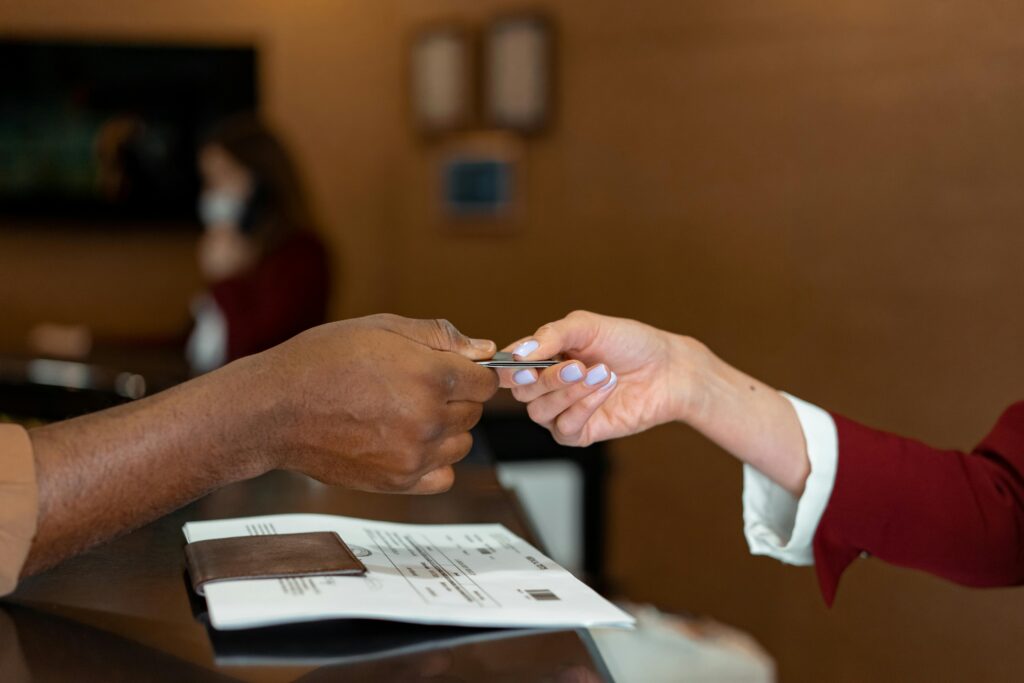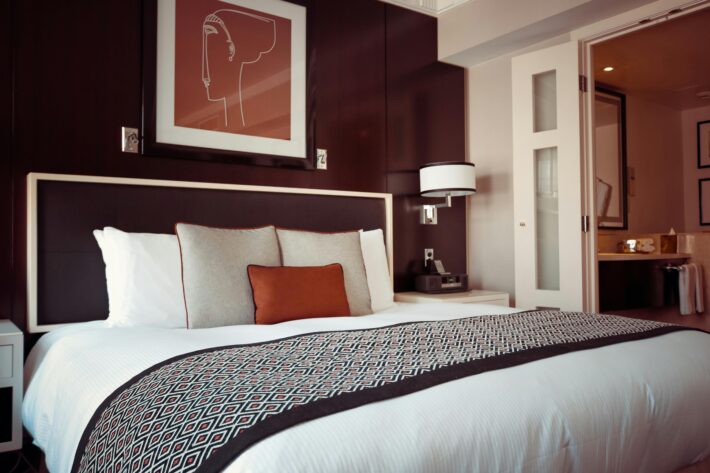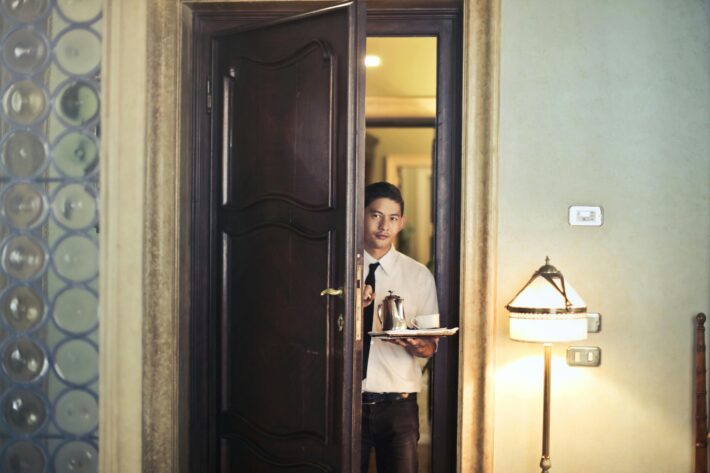AI for Hospitality: Enhancing Customer Engagement

Introduction
In today’s rapidly evolving digital landscape, businesses across various industries are looking to technology to enhance customer experiences. The hospitality sector, in particular, is experiencing a significant transformation influenced by advancements in technology. As customer expectations rise, hotel and restaurant operators are increasingly turning to automation in hospitality to streamline operations and enhance customer engagement. With automation, hospitality providers can not only improve efficiency but also create personalized experiences that keep guests coming back.
A prime example of this transformation can be seen in the hotel industry. Major hotel chains like Marriott have implemented chatbots to handle reservations and answer customer inquiries. These bots can operate 24/7, providing instant responses to guests without the need for human intervention. This not only saves time and resources but also allows staff to focus on higher-level guest interactions, ultimately enhancing customer satisfaction.
As we explore the various strategies and best practices for automation in hospitality, it’s crucial to recognize the potential benefits and challenges that come with adopting these technologies. From chatbots to intelligent booking systems, the journey toward a fully automated hospitality experience is complex yet rewarding.
Key Strategies for Automation in Hospitality
1. Implementing AI Chatbots for Customer Service
AI chatbots are transforming customer service in the hospitality industry by providing immediate assistance to guests. These automated virtual assistants can handle a multitude of tasks, including answering frequently asked questions, booking reservations, and providing personalized recommendations based on user preferences.
#### Why It Matters
The implementation of chatbots reduces wait times and enhances customer satisfaction. According to a report by Juniper Research, chatbots will save the hospitality industry over $2.5 billion per year by 2025. This is primarily due to the efficiency gained from automating routine inquiries and the ability to provide instant responses to customers.
#### How to Implement AI Chatbots
1. Select the Right Platform: Choose a chatbot development platform that seamlessly integrates with your existing systems, such as booking engines and customer relationship management (CRM) software.
2. Define Use Cases: Identify the common queries your guests have and train the chatbot accordingly. This could include inquiries about room availability, amenities, or local attractions.
3. Test and Optimize: Before a full rollout, conduct pilot testing to gather feedback on chatbot performance. Use this data to refine responses and improve user experience.
4. Monitor and Update: Continuously monitor chatbot interactions and update the system with new information or features to enhance its capabilities.
#### Real-World Example
The Hilton group has successfully integrated chatbots into their customer service strategy. Their “Connie” robot concierge utilizes AI to answer guests’ questions and provide recommendations. This innovative approach has not only improved guest experience but has also garnered attention and positive reviews, making it a noteworthy case in the realm of automation in hospitality.
#### Key Benefits of AI Chatbots
- 24/7 Availability: Guests can receive assistance at any time without the need for human staff.
- Cost-Effective: Reduces the need for additional customer service personnel, leading to significant savings.
- Scalability: Easily handle increased customer inquiries during peak periods without compromising service quality.
- Personalization: Can analyze user data to provide tailored recommendations, enhancing the guest experience.
- Feedback Collection: Chatbots can gather customer feedback systematically, providing valuable insights for improvement.
For more information on the impact of AI in customer service, check out this detailed analysis by Forbes.
2. Streamlining Operations with Predictive Analytics
Predictive analytics is another powerful tool that can optimize operations in the hospitality industry. By analyzing historical data, hotels and restaurants can forecast demand, manage inventory, and allocate resources more efficiently.
#### Industry Use Cases
Predictive analytics can be applied in various ways:
- Demand Forecasting: Hotels can anticipate high-demand periods and adjust pricing accordingly, maximizing revenue.
- Staff Scheduling: Restaurants can optimize staff schedules based on predicted customer volume, ensuring adequate service without overstaffing.
- Inventory Management: By predicting consumption trends, businesses can reduce waste and optimize purchasing processes.
#### Step-by-Step Implementation Guide
1. Data Collection: Gather historical data from various sources, including booking systems, customer feedback, and sales records.
2. Choose Analytics Tools: Invest in analytics software that specializes in predictive modeling for the hospitality industry.
3. Model Development: Work with data scientists to develop predictive models tailored to your specific needs.
4. Actionable Insights: Translate the analytics into actionable strategies. For example, if data shows a spike in demand for a certain event, preemptively increase staff or stock.
5. Continuous Improvement: Regularly review and refine your predictive models based on new data and changing market conditions.
#### Actionable Takeaways
- Invest in quality data infrastructure to ensure accurate analytics.
- Collaborate with industry experts to interpret data effectively.
- Use predictive insights to enhance marketing efforts and target promotions effectively.
According to a study by the McKinsey & Company, hotels that leverage predictive analytics can increase operational efficiency by up to 20%.
Best Practices for Automation in Hospitality
Key Actionable Tips
1. Personalization through Data Utilization: Leverage customer data to provide personalized experiences. For example, if a guest frequently orders a specific dish, a restaurant can recommend it upon their next visit.
2. Integrate Systems: Ensure that all automated systems, from CRM to booking platforms, are interconnected. This will streamline operations and provide a seamless guest experience.
3. Train Staff on New Technologies: Even with automation, human interaction remains crucial. Train staff to use automated tools effectively and to understand when personal interaction is necessary.
#### Common Mistakes to Avoid
- Over-Reliance on Automation: While automation in hospitality can enhance efficiency, it shouldn’t replace human touch entirely. Guests value personalized experiences that sometimes require human interaction.
- Neglecting Data Privacy: With increased automation comes the responsibility of handling customer data securely. Ensure compliance with data protection regulations to foster trust among guests.
Incorporating automation can yield significant benefits, but it requires careful planning and execution to avoid pitfalls.
Real-World Case Studies
Case Study 1: Marriott’s Success with Automation
Marriott International has been at the forefront of implementing automation strategies in hospitality. By utilizing mobile check-in and keyless entry systems, guests can bypass the front desk entirely. This not only enhances guest satisfaction but also reduces wait times and operational costs. The company has reported a 30% increase in customer satisfaction scores since implementing these technologies.
Case Study 2: The Pitfalls of Over-Automation
On the flip side, a notable failure in the industry can be seen with a specific hotel chain that attempted to automate too many processes without adequate human oversight. Guests reported feeling neglected and dissatisfied, leading to a drop in repeat bookings. This case serves as a critical lesson on the importance of balancing automation with personal service.
Conclusion
As automation continues to reshape the hospitality landscape, businesses must adapt to meet evolving customer expectations. By leveraging technologies such as AI chatbots and predictive analytics, hospitality providers can enhance customer engagement and streamline operations. However, it’s essential to strike a balance between automation and personal service to maintain a positive guest experience.
Incorporating these strategies requires thoughtful implementation and continuous monitoring to ensure success. The potential for increased efficiency, cost savings, and enhanced customer satisfaction is substantial, making it imperative for hospitality businesses to embrace automation.
For more insights, check out our blog or contact us for expert guidance on navigating the world of automation in hospitality.


